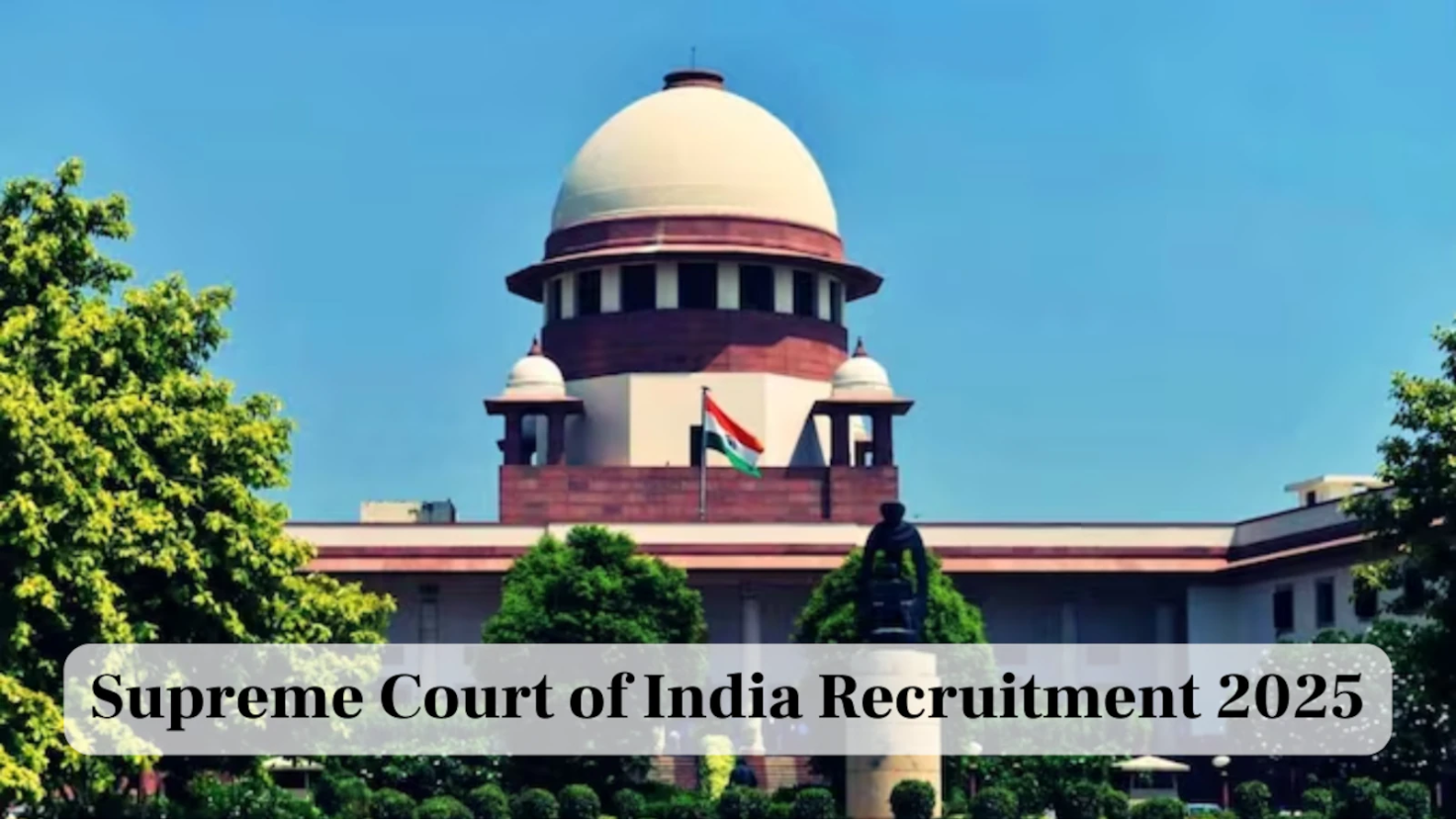The Supreme Court of India has declared the recruitment for Law Clerk-cum-Research Associates for the year 2025 on a short-term contractual basis. Impressive opportunity for law graduates to get a chance to be a part of the judicial system of India. Approximately 90 vacancies exist, and the appointed candidates will be paid a monthly salary of ₹ 80,000. The applications will be accepted from January 14, 2025, through the official website of the Supreme Court. February 7, 2025, is the deadline to apply.
Supreme Court of India Recruitment 2025 Overview
| Item | Details |
|---|---|
| Organization Name | Supreme Court of India |
| Advertisement Number | F.21 (LC)/2025-SC (RC) |
| Post Name | Law Clerk-cum-Research Associate |
| Total Vacancies | 90 |
| Job Type | Contractual |
| Remuneration | ₹80,000 per month |
| Contract Period | 2025–2026 |
| Job Location | New Delhi |
| Application Mode | Online |
| Examination Date | 9th March 2025 |
| Last Date to Apply | 7th February 2025 |
| Official Website | Visit Website |
Supreme Court of India Recruitment 2025 Vacancy Details
| Category | Total Vacancies |
|---|---|
| General | 45 |
| SC | 14 |
| ST | 7 |
| OBC | 24 |
| EWS | 0 |
| Total | 90 |
Supreme Court of India Recruitment 2025 Eligibility Criteria
- Below, we have summarized the required eligibility criteria, such as qualification, age limit, experience, etc. Candidates are advised to review the eligibility criteria before applying for any post mentioned in the notification.
Educational Qualification
- The candidate must hold a Bachelor’s Degree in Law, including integrated degree courses, from an institution recognized by the Bar Council of India.
- Final-year students of the Five-Year Integrated Law Course or the Three-Year Law Course may apply, provided they submit proof of acquiring the law qualification before joining.
- Candidates should possess research and analytical skills, proficiency in legal databases like SCC Online, LexisNexis, and Westlaw, and working knowledge of computers.
Supreme Court of India Recruitment 2025 Age Limit
- Candidates must be between 20 and 32 years as of 7th February 2025.
Supreme Court of India Recruitment 2025 Selection Process
The selection process consists of three phases:
- Multiple Choice Based Questions (Part I): Tests comprehension, legal aptitude, and analytical ability.
- Subjective Written Examination (Part II): Focuses on legal writing and analytical skills.
- Interview (Part III): Assesses overall suitability for the role.
How to Apply for Supreme Court of India Recruitment 2025
- Visit the Supreme Court’s official website at www.sci.gov.in.
- Register online starting 14th January 2025.
- Complete the application form by entering personal, educational, and professional details.
- Upload a scanned copy of your recent passport-sized photograph and signature.
- Pay the application fee of ₹500 plus applicable bank charges through the provided payment gateway. The fee is non-refundable.
- Submit the application form and take a printout for future reference.
Supreme Court of India Recruitment 2025 Important Dates
| Event | Date |
|---|---|
| Start Date for Online Application | 14th January 2025 |
| Last Date for Online Application | 7th February 2025, 23:55 hours |
| Examination Date | 9th March 2025 |
| Answer Key Release Date | 10th March 2025 |
| Objection Submission Deadline | 11th March 2025 |
FAQs
1. What is the last date to apply for the Law Clerk-cum-Research Associate position?
- The last date to apply is 7th February 2025, by 23:55 hours.
2. How can I apply for this position?
- Applications can be submitted online through the official Supreme Court of India website.
3. What is the eligibility criteria for the Law Clerk-cum-Research Associate position?
- Candidates must have a law degree (5-year or 3-year LLB) from a recognized university with good academic records. They should also have proficiency in computer operations.
4. What is the remuneration for this position?
- The selected candidates will receive a consolidated remuneration of ₹80,000 per month.
5. What is the contract period for this role?
- The contract is for a duration of one year, starting from 2025 to 2026.
